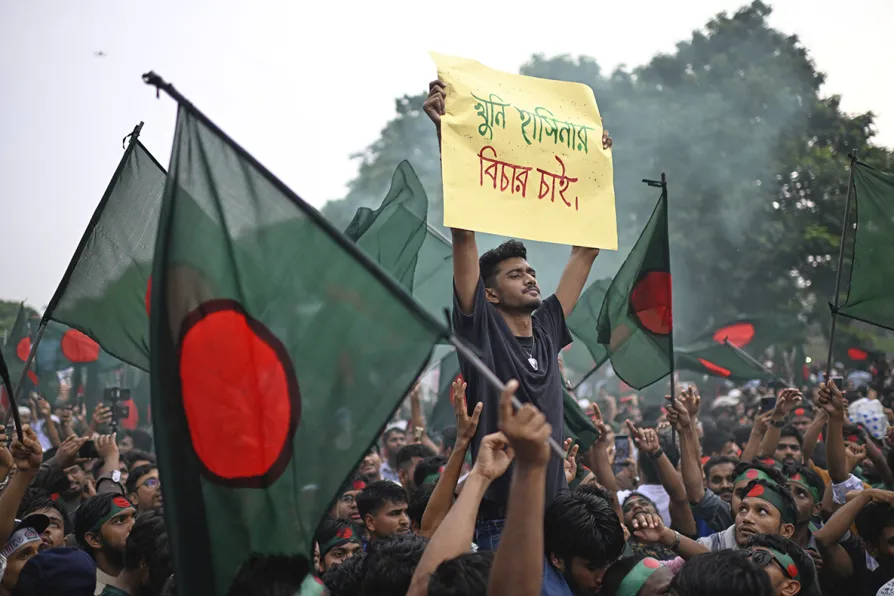
 Students and locals commemorate "July Uprising Day" marking the anniversary of the fall of the Awami League government, in Dhaka, Bangladesh, August 5, 2025
Students and locals commemorate "July Uprising Day" marking the anniversary of the fall of the Awami League government, in Dhaka, Bangladesh, August 5, 2025
IRAN: Government offices and banks across much of the country were ordered to close today for the second time this summer as surging temperatures and a worsening water crisis strained the electricity grid.
As temperatures across Tehran exceeded 40°C, authorities urged residents to avoid outdoor activities and to conserve water and energy. The Iranian capital and other cities are already suffering two-hour power cuts every other day.
Years of sanctions, plus the recent US and Israeli bombings, have left Iran unable to properly maintain and upgrade its energy infrastructure.
SUDAN: The government claims to have “irrefutable evidence” that the United Arab Emirates (UAE) is paying Colombian mercenaries to fight alongside the rebel Rapid Support Forces (RSF) against the military in the country’s civil war.
“This unprecedented phenomenon poses a serious threat to peace and security in the region and across the continent,” the Foreign Ministry said on Monday, asserting that hundreds of thousands of mercenaries had been hired from across Africa.
There was no immediate response from the UAE or Colombia.
BANGLADESH: Interim leader Muhammad Yunus said today that the next parliamentary election would be held in February.
The Nobel Peace Prize laureate made the announcement in a televised address as Bangladesh marked the first anniversary of the overthrow of prime minister Sheikh Hasina, who fled the country amid a student-led mass uprising, ending her 15-year rule.
The Election Commission will set a specific date for the election.
UNITED STATES: Rwanda became the third African nation today to agree to accept deportees under Trump administration plans to deport migrants to countries that they have no ties with.
Rwandan government spokeswoman Yolande Makolo said that the East African country would accept up to 250 people, with “the ability to approve each individual proposed for resettlement.”
The US exiled 13 men to South Sudan and Eswatini last month and has said it is seeking more agreements with African nations.













